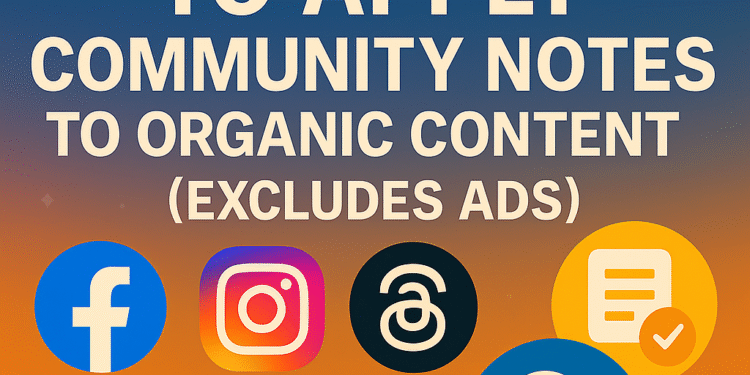The Instagram and Facebook parent Meta enable the “Community Notes” model for the organic content, which will only apply to the paid ads. Meta said that they don’t get paid to promote organic content. Hence, it will enable the community notes for the organic content. Organic contents are the posts that don’t pay Meta for their promotion.
According to the Wall Street Journal, the one who reported the development first added that the brand and influencers who post organic content will now not be subject to committee notes when they first go live.
What Are Community Notes?
Community notes are the fact-checking notes that are attached to the posts. They allow the users to suggest notes to the posts to clarify, correct, or give context to the contents. Community notes help to reduce any misinformation created by presenting multiple viewpoints. The community notes operate as a collaborative tool where the contributors agree to the publication of the notes.
The feature was first introduced on the social media platform X (formerly known as Twitter). This feature provides additional context for any misleading or incomplete information on the contents.
The organic content does not pay any revenue for the promotion of their posts. In case any post with text updates, images, shared links, or videos is deemed misleading or in need of context, it might be subject to the community notes. Any notes added by the examined contributors on the Meta platforms follow the Meta’s standards to participate. After which the posts are visible to users who interact with the content, which will help the users to understand the accuracy and intents.
Why are the paid ads an exclusion?
The paid ads on any Meta platforms are not subject to Community Notes features. However, the organic contents are subject to these features. There are several reasons for the exclusion of paid ads:
- Meta’s strict Ad review policies are one of the most important reasons for the exclusion of paid ads. As it has its own guidelines and review process for any paid advertisement. The paid advertisement undergoes a manual and automated review process, which ensures that the ads meet the policies and guidelines of the platform for approval. This process helps in reducing any misinformation that might be spread in ads.
- Meta ensures that the advertisers are legally and financially responsible for their promotional content. In case any ad violates the guidelines and policies of Meta, the advertisers will be held accountable by Meta. The advertisers may also have to pay a stricter penalty charge than that of the organic content moderation.
- The potential conflict of interest is also one of the reasons for the exclusion. The advertisers pay revenue for their space on the Meta platforms. Therefore, applying community notes on the ad content might lead to disputes over content moderation. This may also lead to discouraging the advertisers from any further investment in the platform.
- There is a tool called “Ad Library” present on the Meta platforms that allows the users to view all the ads that are being run on an account. This provides a layer of transparency. However, these ad transparency rules are not available on the organic posts.
A spokesperson for the Meta stated that “The Meta company is making the transaction to community notes over the next couple of months in the US.”
The community notes on the Meta social media platform for organic content aim to enhance transparency and reduce misinformation.










